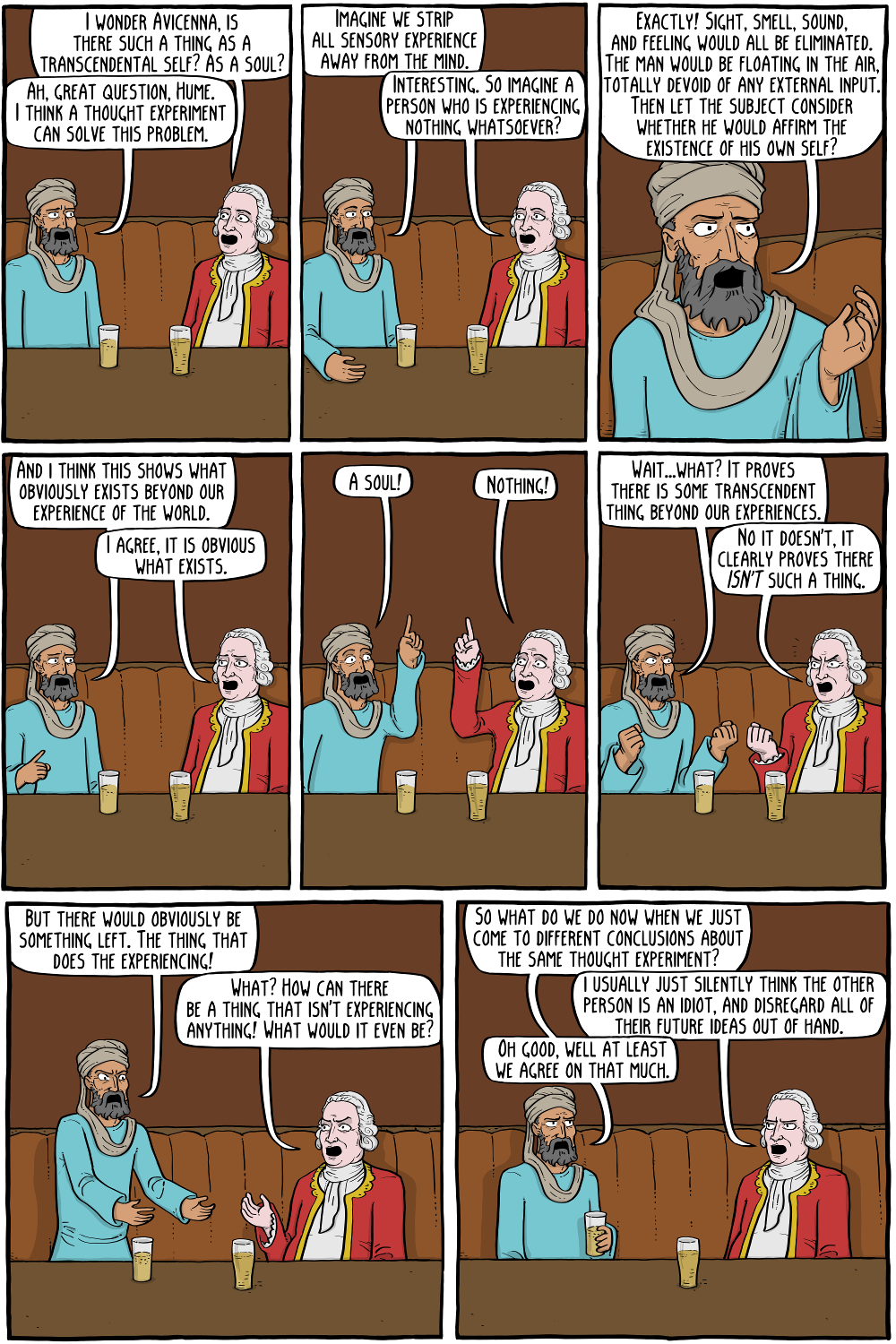
Avicenna, an 11th century Islamic philosopher, gave his "floating man" thought experiment to prove the existence of a soul, or a transcendent self. He asks us to imagine a person with no sensory experience at all:
One of us must suppose that he was just created at a stroke, fully developed and perfectly formed but with his vision shrouded from perceiving all external objects - created floating in the air or in the space, not buffeted by any perceptible current of the air that supports him, his limbs separated and kept out of contact with one another, so that they do not feel each other. Then let the subject consider whether he would affirm the existence of his self. There is no doubt that he would affirm his own existence, although not affirming the reality of any of his limbs or inner organs, his bowels, or heart or brain or any external thing. Indeed he would affirm the existence of this self of his while not affirming that it had any length, breadth or depth. And if it were possible for him in such a state to imagine a hand or any other organ, he would not imagine it to be a part of himself or a condition of his existence.
David Hume, six hundred years later, ran through basically the same thought experiment, but came to the opposite conclusion. That there was no such thing as a self without some experience attached to it:
There are some philosophers, who imagine we are every moment intimately conscious of what we call our self [...] For my part when I enter most intimately into what I call myself, I always stumble on some particular perception or other, of heat or cold, light or shade, love or hatred, pain or pleasure. I never can catch myself at any time without a perception, and never can observe anything but the perception.
This lead him to his Bundle Theory of the self, where we are nothing more than the sum of our experiences. While it seems that most people come down on Avicenna's side, it is unclear how to resolve a dispute between two people who come to opposite conclusions from such a thought experiment.
Permanent Link to this Comic: https://existentialcomics.com/comic/267
Support the comic on Patreon!










